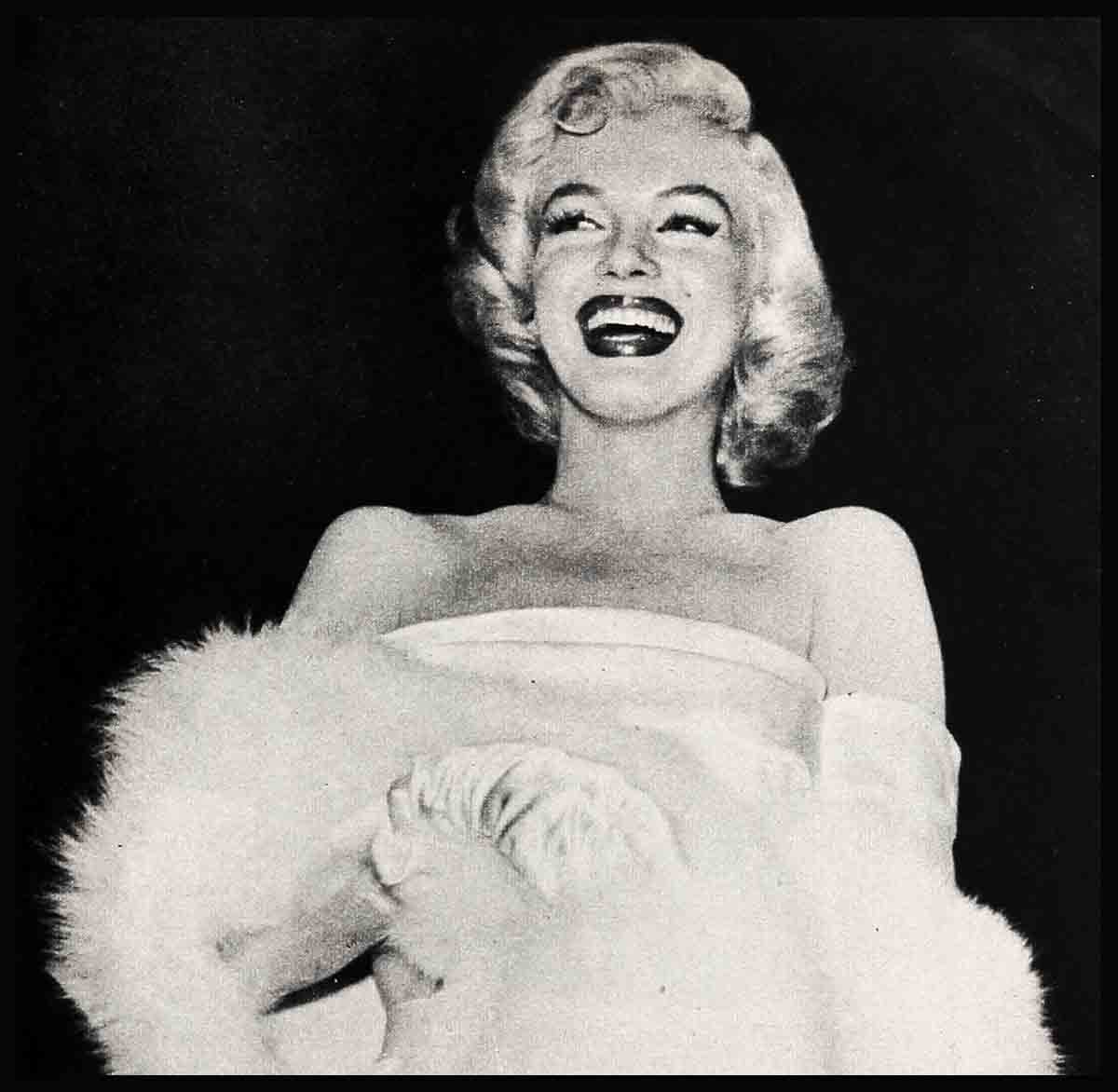
How To Be Very, Very Charming—Marilyn Monroe
In 1949, when Marilyn Monroe made her first appearance in New York City for a publicity stint, no one got terribly excited. “Just a sweet young thing—eager and cooperative, but lacking any spark,” said one publicity executive. “Another starlet,” predicted a hardened editor.
In 1954, the next time Marilyn chose to return, for the shooting of “Seven Year Itch,” she achieved total invasion, created complete mayhem. It is said that. airplanes were off-schedule at La Guardia while airline personnel beat a hot trail to help her deplane. New York’s police force suddenly found all its top men volunteering for La Guardia duty. Newsmen were too numb to write in their little black notebooks and photographers shot an un-necessarily large quantity of film. All Marilyn had to do later was stand at Fifty-first Street and Lexington Avenue over a subway grating. Five hundred men chose to lose a good night’s sleep by showing up at midnight to watch her emote for an hour. The most inconspicuous cab driver became a hero because he had driven her across town. Two weeks after she left, the city had yet to return to normal.
What happened? “Charm,” says Parisborn Helena Sorrel, dramatic coach at 20th. “And charm can happen to you, too.
“When Marilyn Monroe first came to me, she was the most frightened young girl I’ve ever seen. She was completely sure she couldn’t do anything. She insisted she could never learn, that she could never be anything. She was absolutely unsure of herself. With Marilyn it was not a question of building her self-confidence. It was a problem of giving her self-confidence. She had none.
“But Marilyn was not alone. Debra Paget, Jeff Hunter, Johnnie Ray, Jean Peters (how I struggled to free Jean from tension!), Sheree North, all these youngsters have come to me so stiff and scared that their motions were actually jerky. When I asked them, as I usually do, ‘What are you thinking of?’ they’d inevitably tell me, in almost the same words: ‘I’m thinking I may make mistakes, I may not be liked or attractive.’ Then, almost always, they’d add, ‘I’m so self-conscious.’
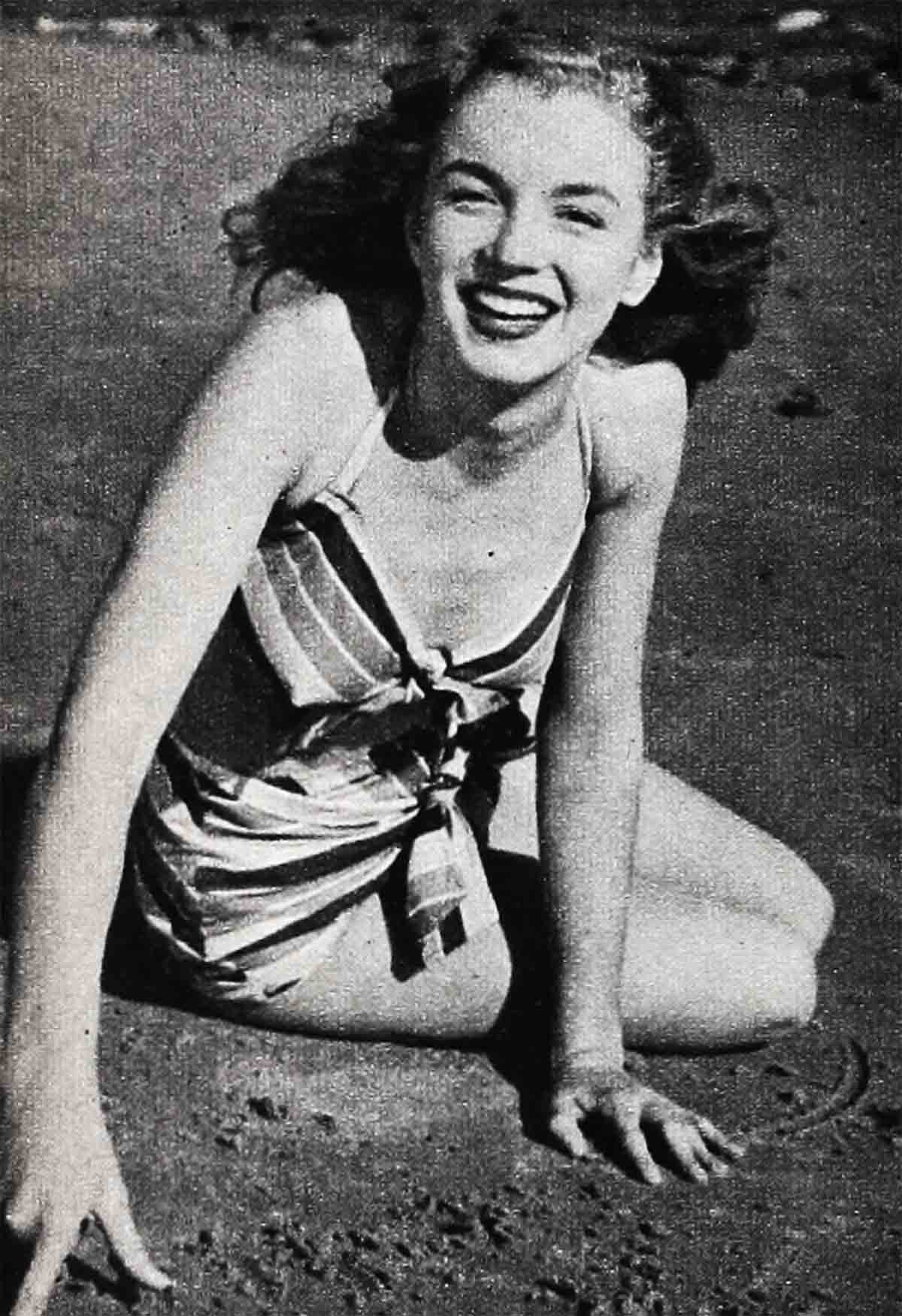
“Charm, in other words, means forgetting one’s self.
“Two things are essential for an actor. Relaxation—physical and mental—and observation—of everyone and everything. These are important for everyone—including you.
“How to begin? I’ll tell you what I do. Usually I sit and talk with the person. With Marilyn, we chatted and got to know one another. I’d ask about obvious things. The weather. The smog. Headlines in the daily paper. Books, tennis, skin diving—anything which I thought might interest her enough to forget herself.
“With most of the young players, I ask, ‘What do you do when you’re alone? Have you hobbies?’ I try especially to discover what are their enthusiasms. Enthusiasm helps more than anything I know to overcome self-consciousness. You should have enthusiasm about everything—a sunset, a beautiful flower, a good book—if it appeals to you. And don’t be frightened to show it. An enthusiastic person is always charming.
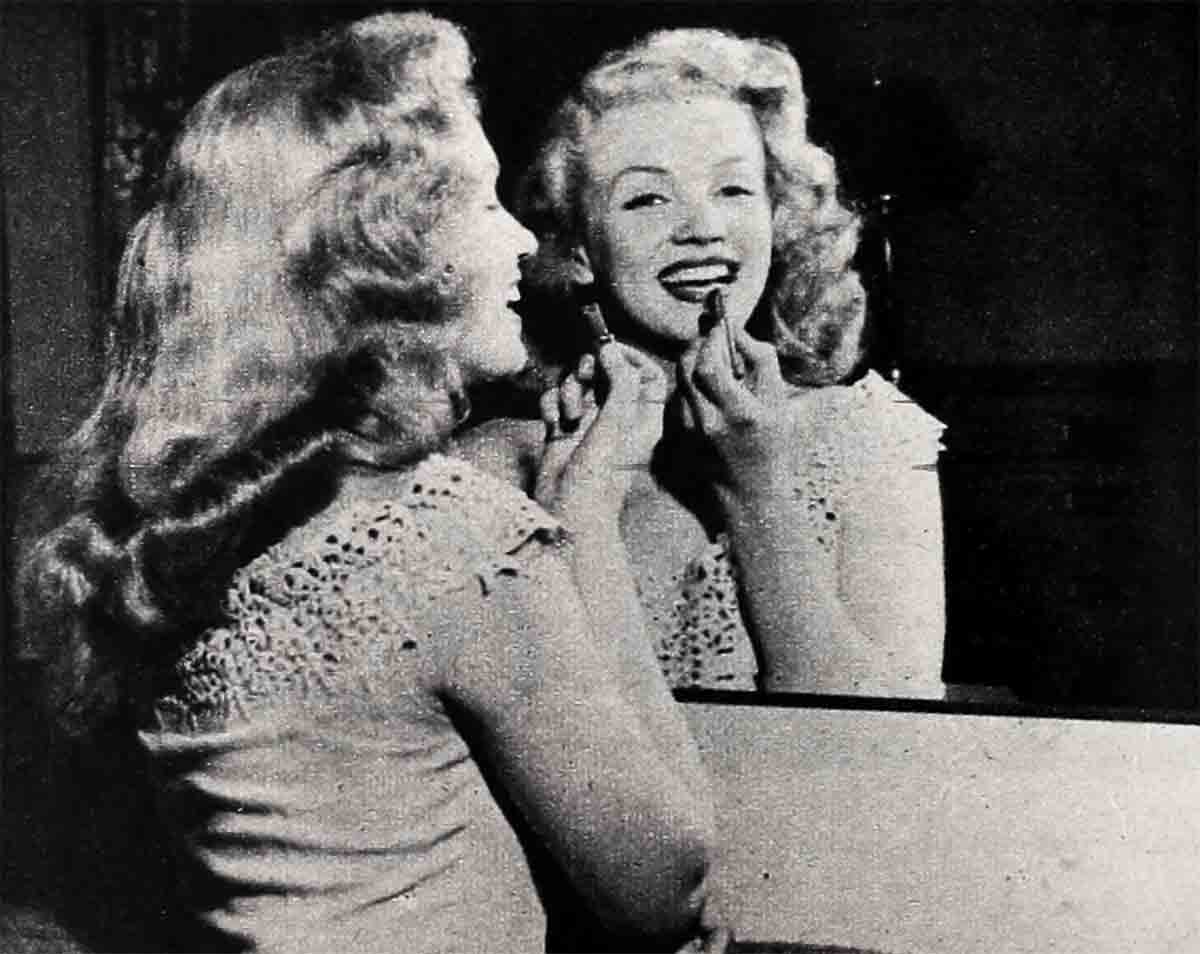
“Once a young player is sufficiently relaxed, we start to work on specific problems. First of all, on the voice. A few of us are born with a quality or timbre of voice that charms the listening ear—like Jean Simmons and Jeffrey Hunter. Unfortunately most of us have to work on our voices. Shallow breathing, talking in short panting breaths, speaking too hurriedly and slurring the words can make your voice come out high, thin, flat or gaspy.
“When I have a voice to train, I begin by asking the pupil to lie flat on the floor. The moment you relax, you automatically breathe properly. Test yourself. When you inhale, the air should be drawn in to the very bottom of the lungs; exhale correctly and the tone will come forth round. In order to produce a tone that is both round and rich, your lips should be round, too, and the jaw relaxed. Use the tip of the tongue, not only the back, when you talk. Practice over and over again. Your speech should be clearer. Remember, inhale full, exhale with lips rounded. Relax your jaw and round your lips.
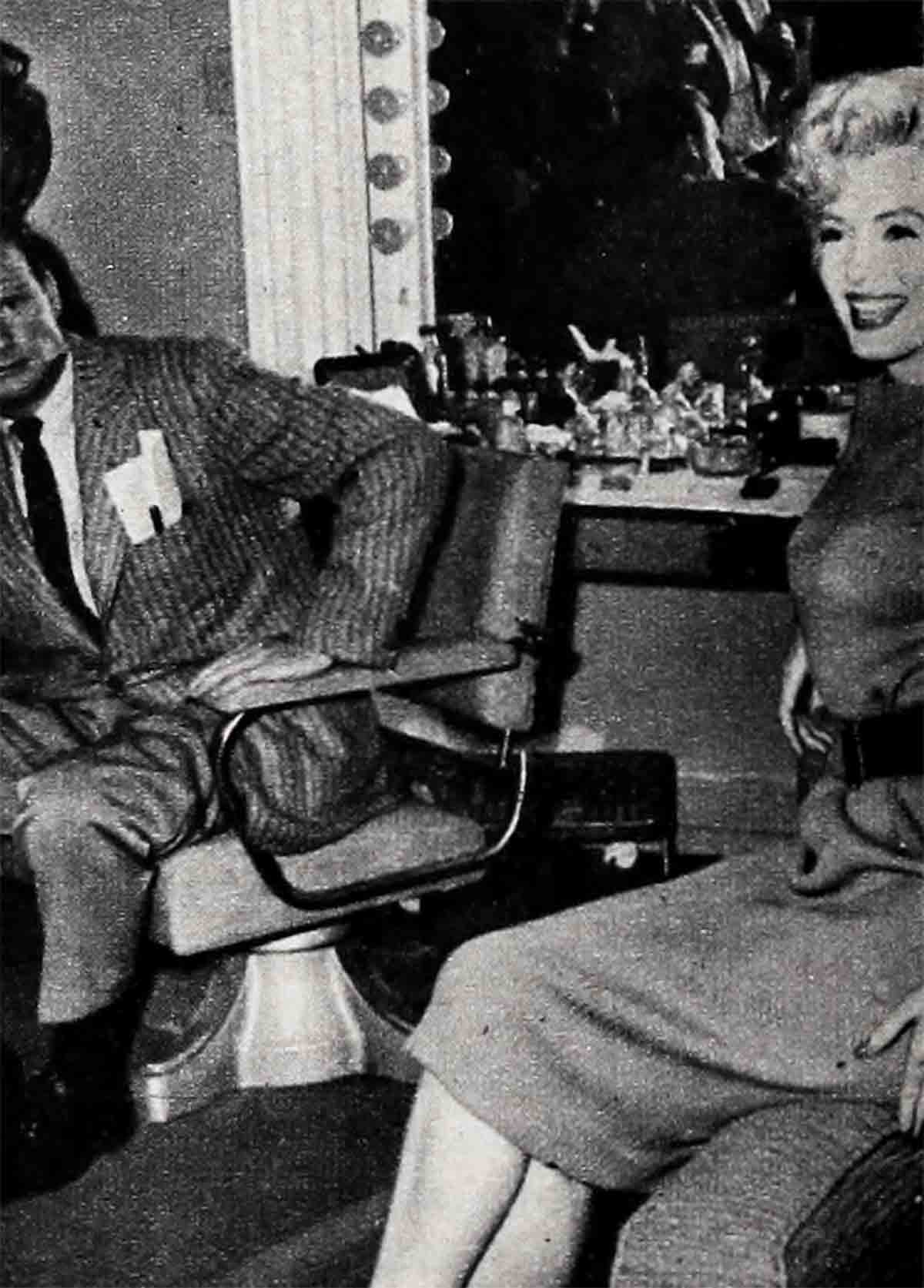
“Another important thing to remember when talking is to put color into the words you use. By this, I mean inflections, intonation and above all imagination. Think about what you are saying, visualize it. Don’t talk in a monotone. The speaking voice has great range. Try making the most of it.”
“If you have a speech defect,” suggests M-G-M’s Lillian Burns, “consult a speech-correction teacher. She can help you and it’s worth your time. For better diction, though, you don’t need a voice teacher—you need a dictionary. The dictionary not only helps build an interesting vocabulary, it tells you proper pronunciation. A girl saying kin for c-a-n can never be charming.”
“At Paramount,” Charlotte Cleary says, “we never try to change a personality. My business is to help an actor or actress realize that her particular personality is her little gold money. Even an unattractive voice can belong to a personality, and we leave it alone. A beautiful example is Aldo Ray. Without his gravel voice, he wouldn’t be Aldo. Marlon Brando’s way of speaking doesn’t conform, but it belongs to him and is extraordinarily interesting. So don’t despair if you’ve an odd voice. Sometimes a so-called handicap can be captivating.”
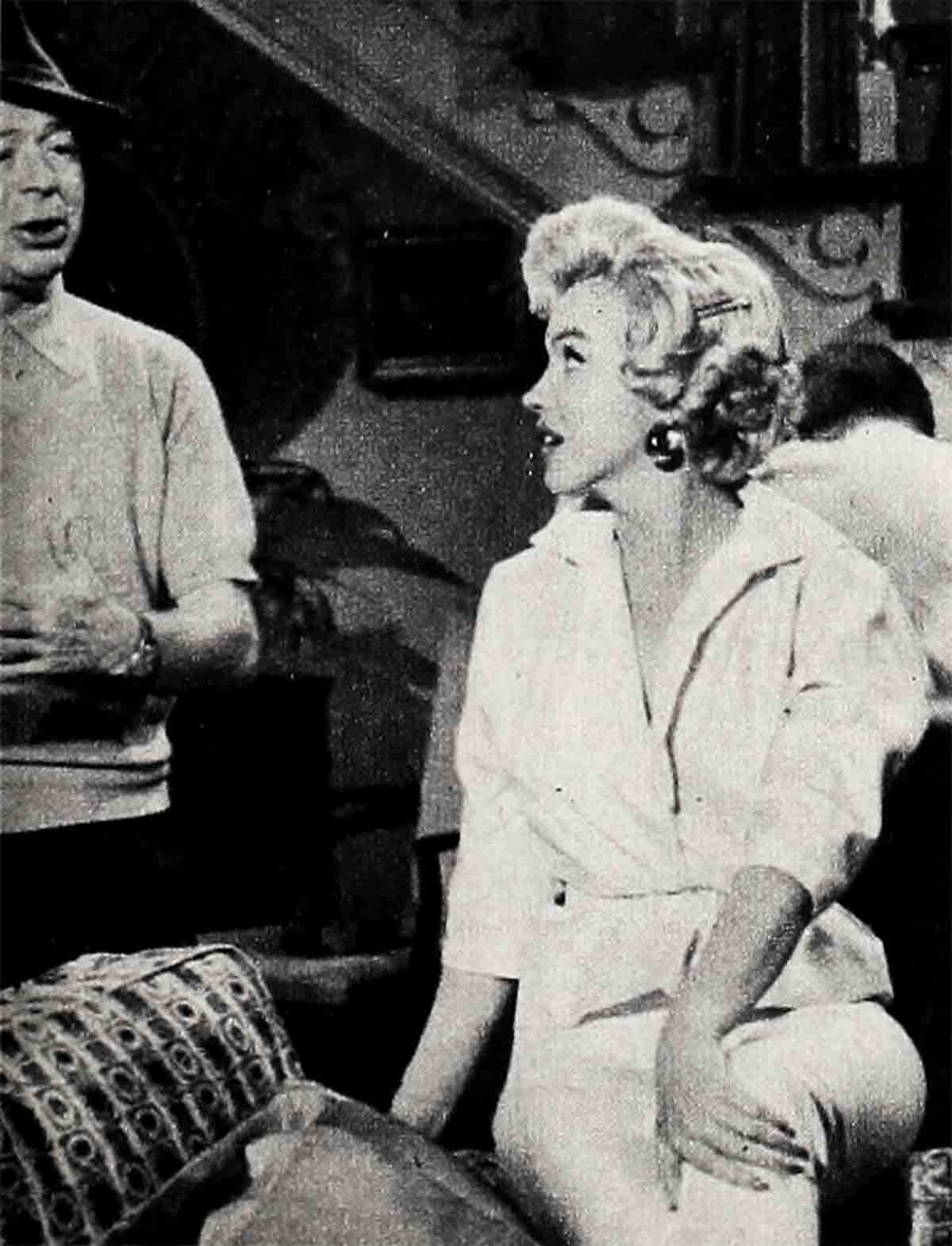
“Next to the voice, you’ll probably have to work hardest on your walk. A good walk is so important,” insists Helena Sorrel. “It’s the basis for all first impressions. Most people walk badly because they break in the small of the back. They slump—and frequently lead with their heads like a turtle. Lead with your diaphragm, never with your head,” insists Miss Sorrel. “Watch how Marilyn Monroe holds her head high—as though she were the most confident person in the world.
“Look in the mirror. Now align your body properly. A simple way is to stand straight, inflate the chest, relax the shoulders. Keep the buttocks tucked under! Think of a strand of pearls which you are mentally holding erect, making sure each pearl fits perfectly above the other.
“When you sit down or rise, do it gracefully. Imagine you are equipped with invisible strings which are controlling you. Keep your feet under you when you sit. Now try standing up, as though strings were pulling you. Notice how relaxed you feel?
“At the studio we do stretching and bending exercises to improve the walk. Everyone should stretch every day. Before you get out of bed in the morning, stretch your body—it makes for suppleness. Bend over a couple of times from the waist. Feel stiff? Then you needed it! Walk well,” says Miss Sorrel, “and you’ll carry your clothes well. Wear clothes well and you’ll be noticed.”
You won’t overcome self-consciousness overnight, but keep trying. U-I’s Katharine Warren suggests you try to remember these tips.
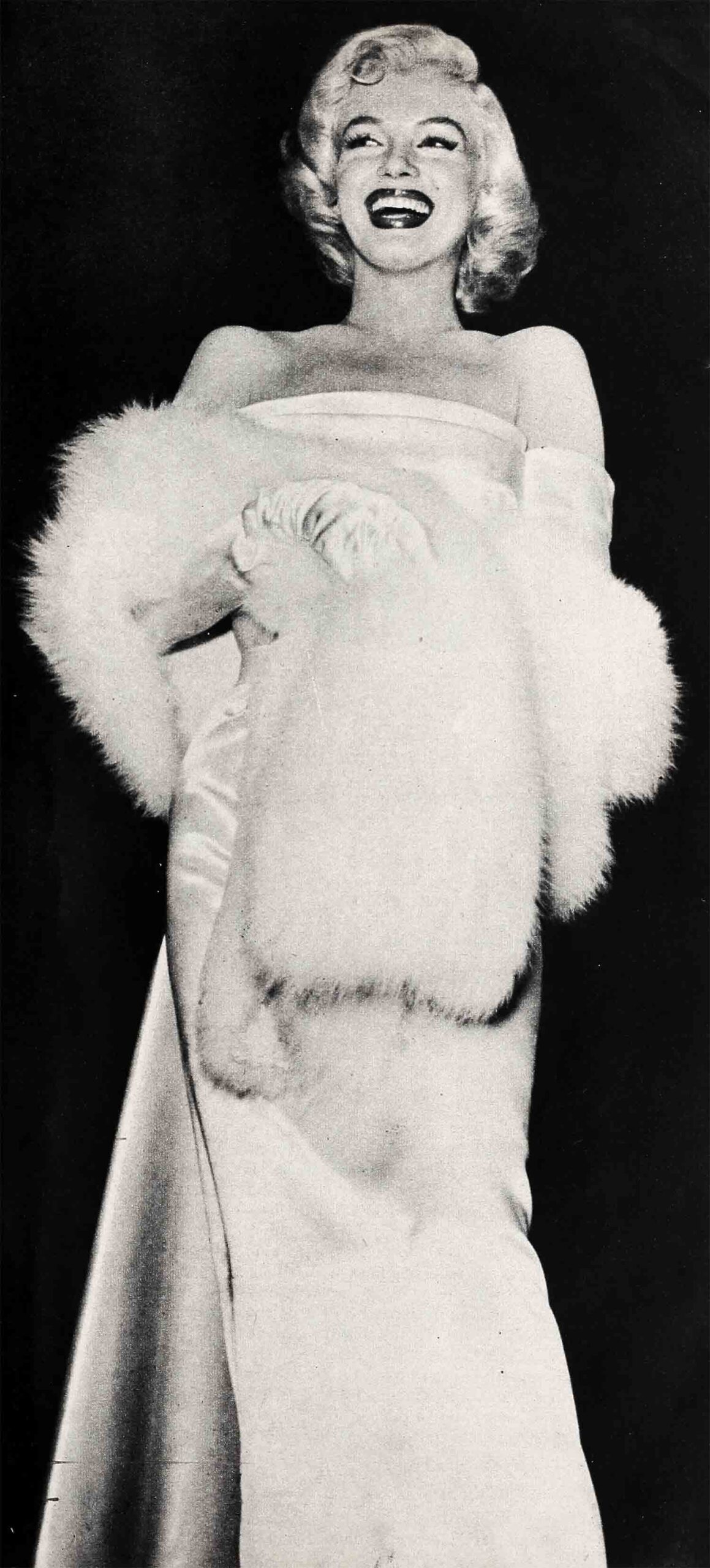
“When you’re going to a party, or anywhere for that matter, look your best. Make certain your hair is combed becomingly, that your slip is not showing, your shoulder straps are put, that the seams in your nylons are straight and your dress is held together by thread not pins. A girl who doesn’t have to tug at her shoulder straps is free to listen. Learn to be a good listener,” pleads Miss Warren. “This is the easiest way to forget yourself. Even if you’re bored, listen, try to draw the person out. I guarantee you’ll be popular.”
“Why in the world do so many people want to look like and be like people in the movies or TV?” Lillian Burns suddenly demanded. “At M-G-M our hardest job is to make certain Debbie Reynolds is not becoming like Janet Leigh, that Kelly and Turner keep their identity.
“Yet the greatest lack I find in young people today is that lack of individuality—they seem compelled to copy. To wear the same things, copy the same hair styles, mimic the same talk.”
What Miss Burns would like to see every young girl do is to study herself and find one or two qualities that are completely hers—red hair, freckles, tallness, whatever—and find out how to make the most of them.
“I can only tell you that the important thing is not to copy, or attempt to copy,” is Miss Burns’ advice to you. “I can only suggest that you think, read, learn to analyze yourself, if possible with the help of your parents, a teacher, a counselor or even a friend. Develop yourself and pursue this development endlessly.”
If you’ve a few free minutes, sit down alone and see how you rate.
1. How is my walk? DoI slump? Do I panic at entering a room?
2. Is my voice thin? High? How’s my diction? Do I talk too rapidly? Do I think about talking properly? About bringing out full tones?
3. Am I observant of people and things around me? Do I listen well? Can I make conversation? Am I really interested in people?
4. Do people consider me enthusiastic? Do I get a bang out of many things? Do people like to be with me?
5. Am I self-conscious? Do I know why? How can I overcome this?
6. Am I a copycat? Do I buy the same clothes as the other girls? Do I follow the crowd in entertaining, hairdo, etc.?
7. Do I have any interests? Any hobbies? Are there things I’d like to do?
8. Do I tell people my problems? Am I fun to be with? Do I smile often?
9. When was the last time I learned a new word? Read a book?
10. Do I like myself? What have I to offer other people?
Well, how did you do? Are you charming?
THE END
It is a quote. PHOTOPLAY MAGAZINE NOVEMBER 1955




